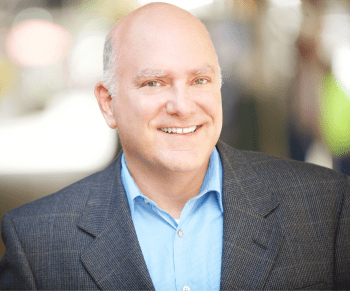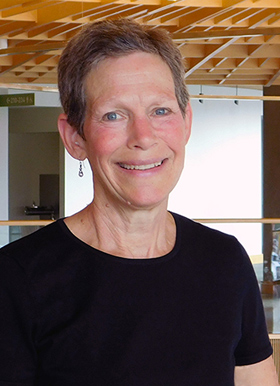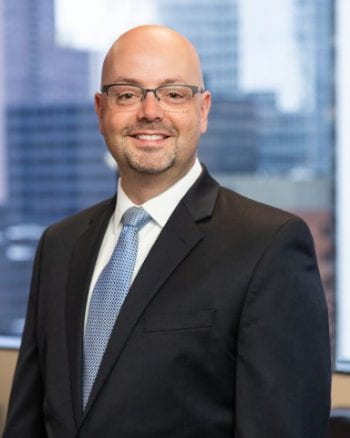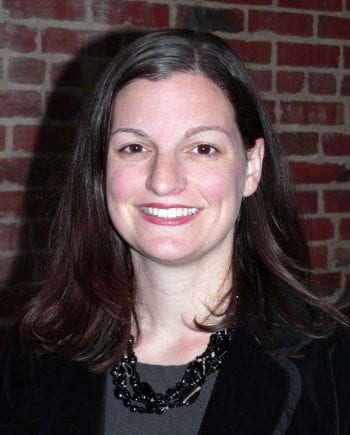From across a nation struggling through the COVID-19 pandemic and a generally difficult year, over 150 scholars and practitioners gathered virtually on September 21 for “FCAB Policies: Race and Inequality in the COVID-19 Era,” Part 1 of the two-part convening “Financial Capability and Asset Building: Achievements, Challenges, and Next Steps.” They gathered to set an agenda for broadening financial well-being.

“We are living in an undeniable moment in history,” said Jonathan Mintz, Founding President and CEO of the Cities for Financial Empowerment Fund, and the conference’s plenary speaker. “Americans’ finances are in trouble,” he added. “Literally tens of millions of people have been laid off, are experiencing reduced hours or have had to leave work in order to care for somebody who’s ill.”
Echoing the point, William Emmons said, “Vulnerable people always get hit harder by recessions, but I think this one is even worse because of … the way our economy is organized with so many lower wage jobs in the service sector.” He added, “The economic and financial damage suffered by millions, tens of millions, of vulnerable people and families could surpass that of the Great Recession.” Emmons is Economist and Assistant Vice President with the Federal Reserve Bank of St Louis and Lead Economist with the bank’s Center for Household Financial Stability.
In discussing why vulnerable communities bear heavier burdens, several participants noted the harsh racial inequities that captured public attention.
Devin Fergus began the opening plenary by pointing out the “disparate impact that COVID has in exposing and exacerbating inequalities across race, class, and gender.” Fergus is the Arvarh E. Strickland Distinguished Professor of History and Black Studies at the University of Missouri.
Pointing to the “challenge of understanding and confronting structural racism, and the huge tangible financial damage, especially to families of color,” Margaret Sherraden said, “To tackle inequality, we must understand our history of racist policies and practices.” Sherraden is Professor Emerita at the University of Missouri–St. Louis, Research Professor in the Brown School at Washington University, and Faculty Director at the Center for Social Development.
Devin Fergus noted that the cost of access to the financial mainstream remains a pernicious challenge: “Unlike a century ago, asset building seems less about racial exclusion than a higher cost of financial inclusion for Blacks and other historically disenfranchised populations.”
That cost “may just represent the most recent form of wealth extraction,” Fergus said. “Transferring financial resources from communities of color,” he added, is a tactic “with a history as old as Black freedom itself.”
Trina Shanks, the Harold R. Johnson Collegiate Professor of Social Work at the University of Michigan and a CSD Faculty Director, elaborated upon the ongoing effects of that history. “Someone who lost money in the Freedman’s Bank, their children and grandchildren probably heard about that and maybe don’t trust banks. Just like the children or grandchildren of people who were mistreated in the Tuskegee experiment, they don’t trust hospitals.”
Shanks added, “Real people were hurt by these things, and those real people are passing those stories on to their children. You have to overcome some of those stories and that emotional angst as you try to get people to participate openly and fully in our financial system today.”
“Our discipline is trying to wrestle with and fully understand … the factors that either prohibit or inhibit or open the doors toward financial well-being, said Billy Hensley, President and CEO of the National Endowment for Financial Education, which is the primary sponsor for both parts of the conference. He continued, “Our vision is that that we want every person to live their best financial life … and how we do that is by helping every person that we can navigate the system that does exist.”
Hensley added, “It doesn’t mean it’s the right system or it’s a fair system or it’s a just system. But what we want to do is shed light on the obstacles.”
Participants examined many of those obstacles and strategies for overcoming them in research panels, roundtable conversations, and discussion groups.
In summarizing one group’s discussion, Mathieu Despard said, “People can’t budget their way out of poverty.” Financial inclusion, he said, should be paired with “reduced economic inequality and everything that that means,” including policies to raise the minimum wage, forgive student and medical debt, and broaden the criteria used to assess creditworthiness. Despard is Associate Professor in the Department of Social Work at the University of North Carolina at Greensboro, Faculty Director with the Social Policy Institute at Washington University, and Faculty Associate with the Center for Social Development.
A group discussion on race, financial capability and asset building (FCAB) centered on the importance of recruiting White allies to address racial inequality in financial inclusion, but also on the importance of holding those allies accountable.
“We can’t rely on Black, Brown and indigenous folks to continue to do all the work,” said Jodi Jacobson Frey, Professor in the University of Maryland School of Social Work. “It’s time,” she noted, for the FCAB network “to really take that on as a group.”
Frey said that the group also discussed reparations. “This has to be kept on the table of conversation,” she said, acknowledging that the chances for such proposals are limited. She added that such conversations within the FCAB network could “encourage research on ways to think about innovation and strategies where this could work and be successful.”
“With the storytelling, with the history, with the knowledge building and continuing to push ourselves as a field to be accountable, there could be some hope for change,” she said.
“Financial Capability and Asset Building: Achievements, Challenges, and Next Steps” is hosted by the Center for Social Development and the Financial Social Work Initiative at the University of Maryland School of Social Work at the University of Maryland School of Social Work. Support for this conference comes from the primary sponsor, National Endowment for Financial Education (NEFE), which supports the advancement of research and education in financial capability, as well as from the Woodside Foundation and the Grand Challenges for Social Work. Part 2 of the conference, “Theory, Evidence, Education, and Practice in FCAB,” is scheduled for February 25, 2021.
Main image credit: “Coronavirus (COVID-19) Sheffield, UK” by Tim Dennell on Flickr. Licensed under Creative Commons Attribution-NonCommercial 2.0 Generic (CC BY-NC 2.0). https://creativecommons.org/licenses/by-nc/2.0/





